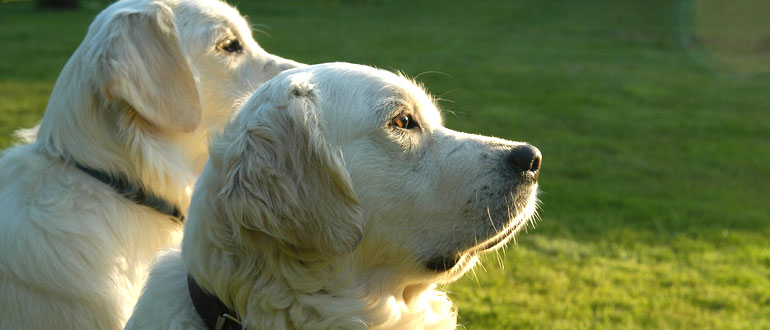How To Encourage Friendly Behaviour Towards Other Dogs


HOW TO ENCOURAGE FRIENDLY BEHAVIOUR TOWARDS OTHER DOGS
16 January 2016Taking your dog for a walk should be one of the most pleasant experiences for an owner. It’s a great way for both parties to exercise, relax and keep those stress levels down; however for some it can be a tense encounter if they come across an unknown dog along the way. Does this sound like you?
Dogs that aren’t used to the company of other dogs can often feel threatened and become aggressive. This common behavioural problem can turn into a dangerous situation if it isn’t rectified early on. So just how can you encourage your dog to be more sociable around other dogs? Read on to hear what our experts have to say…
Helen Gerard, Naturally Clever Canines
Good socialisation is the key to dogs being sociable around other dogs, although this does not mean allowing puppies to jump all over each other. That method can cause problems in the long term. The aim is for dogs to have positive experiences around other dogs, without feeling worried or overwhelmed.
With older dogs, again it is important to ensure that positive experiences are had and they are not forced into any interactions.
Helen Eade, Social Paws
Encouraging a dog to be sociable around other dogs all depends on how familiar he or she is with other dogs already, the age of the dog and the experiences this dog has had. I always recommend dogs meeting on mutual territory in an area in which you are able to control the situation or variables where possible.
Young pups
If it's a young pup we want them to meet lots of new dogs in the early stages of development to help familiarise them with lots of different sizes, breeds and temperaments of dogs. However at first I would suggest only introducing to the more calmer and friendlier of dogs - introducing your pup to a dog that may be over boisterous or not friendly with other dogs may result in a negative experience which at a later date may transfer to a fear of all dogs. I would suggest finding a local puppy class - one which has around 8-10 other puppies, allowing them to socialise but with guided play. I'd also recommend introducing your pup to a variety of social settings where the likelihood of meeting a few other dogs is high - again we don't want to overwhelm the pup so short introductions and ensure you can control the situation introducing to the more friendly dogs. Slowly increase the amount of dogs the pup meets and then eventually slowly proofing the pup now with dogs that may not be so playful - the pup needs to learn that not all dogs want to play. However always avoid aggressive dogs.
Older dogs with lack of socialisation or who've had a recent trauma
If your dog has had very previous socialisation or has undergone a recent trauma you must pick your introductions wisely. Dogs that are calm and friendly but not over boisterous - short and controlled introductions. You could meet a friend who has a calmer dog or go to a local park where similar dogs visit everyday, this will help your dog build up the trust with familiar dogs then allowing you to move on to unfamiliar dogs. Remember take it slowly and never put your dog in a situation which he/she feels uncomfortable or feels forced into being around other dogs. Your dog should always be given the option to walk away, with lots of space and first on mutual territory.
If your dog is an older dog but is already familiar with socialising with other dogs
I would suggest finding a more busier park where you can meet other dogs on a daily basis. Your dog will enjoy seeing his 'friends' but at the same time will always meet new dogs too. There are a number of dog walking groups you can go to - meet up has a dog friendly walking group and you can even set one up yourself. You can also take your dog to dog shows and fetes where you can practice polite on lead introductions. Remember socialisation takes place on and off lead.
Nikki Martin, Dickson Dog Training
Your dog will make its own choices with other dogs, never force your dog to say hello, there is generally a reason for them not wanting to say ‘Hello’. As a puppy take them to classes and allow off lead play with other dogs.
Join our mailing list....

We recommend....












